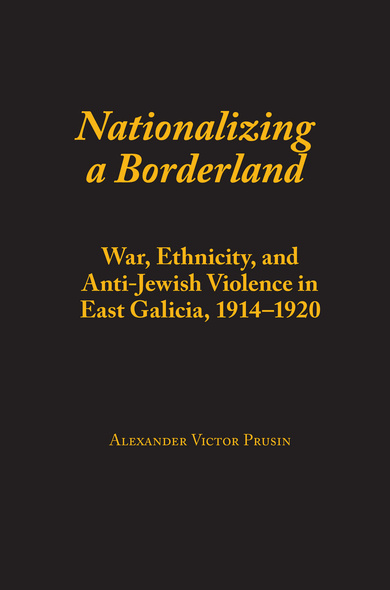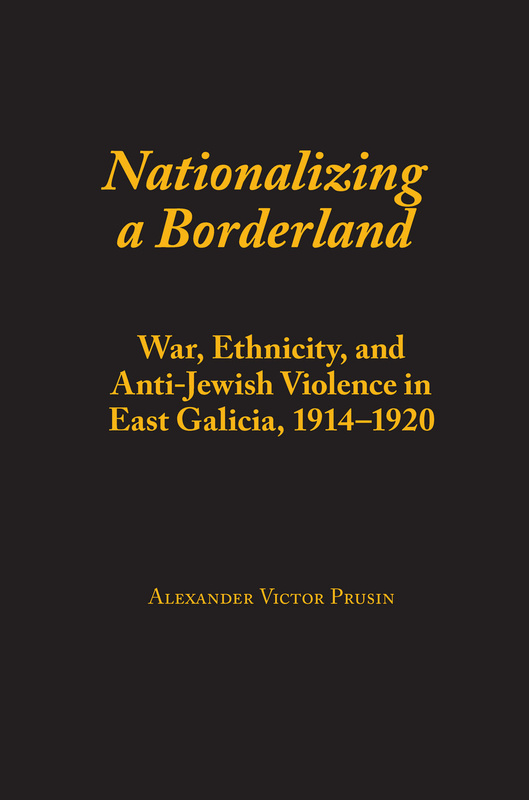
Nationalizing a Borderland
War, Ethnicity, and Anti-Jewish Violence in East Galicia, 1914–1920
Nationalizing a Borderland enriches understanding of ethnic conflict by examining the factors in the Austro-Hungarian province of Galicia between 1914 and 1920 that led to the rise of xenophobic nationalism and to the ethnocide of World War II. From Russian, Polish, Ukrainian, and Austrian archival sources, Prusin argues that while the violence inflicted upon Jews during that period may at first seem irrational and indiscriminate, a closer examination reveals that it was generated by traditional antisemitism and by the security concerns of the Russian and Polish militaries in the front zone. This violence, Prusin contends, served as a means of reshaping the socio-economic and political space of the province by diminishing Jewish cultural and economic influence.
While a regional study, [Nationalizing a Borderland] is all the more important for locating the intersection between war, ethnicity, imperial collapse—and one should add collective psychic disturbance—in the creation of nation-states and the degree to which such a combination may have entirely fatal consequences for ethno-religious communities most marginal to the struggle.’
—Nations and Nationalism
‘Prusin has produced a well-researched monograph that should be consulted by students of the Great War, twentieth-century ethnic cleansing, and Christian-Jewish relations in Eastern Europe.’
—American Historical Review
The author explores the 'dynamics of persecution' of Galician Jewry (a very sizeable community) from the side of the Russian Empire and the emergent independent Polish state. He demonstrates that there was an interesting symmetry between their attitudes, both coming to see the Jews as a universal and lethal threat to their national interests.'
—John Klier, author of Imperial Russia's Jewish Question, 1855-1881




